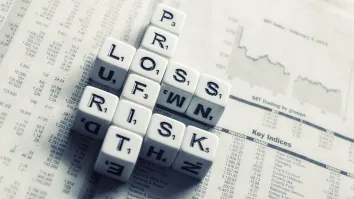
Data analysis, key to AIA Indonesia’s success in combatting fraud
Standard operating procedures and trained investigators keep AIA Indonesia in check.
As a Deloitte study found a 60% increase in fraud cases in the insurance industry over the past two years, AIA Indonesia has stayed composed whilst acknowledging that such cases have been piling up.
The thing is, as one of the largest insurance companies in Indonesia, AIA has a formidable anti-fraud mechanism in place and it doesn’t stop on improving.
“AIA Indonesia continues to strengthen its control mechanisms for prevention, enforcement, and the implementation of anti-fraud strategies. By adopting a zero-tolerance policy towards fraud cases, AIA Indonesia aims to deter employees and agents, thereby reducing internal company fraud,” Rista Qatrini Manurung, director of Legal & Compliance at PT AIA Financial (AIA Indonesia), told Insurance Asia.
The insurance leader applies a fraud risk management framework that includes risk assessment, prevention methods, detection, and investigation.
Types of fraud
Rista explained that AIA Indonesia identifies types of fraud based on the perpetrators: internal (employees), external (customers, hackers, and vendors), and agents.
Fraud committed by customers often involves providing false information or submitting fictitious insurance claims.
“These fictitious claims can certainly harm insurance companies. Fraudulent claims, particularly life insurance and health insurance claims, can impact public trust in the insurance industry,” Rista said.
Other types of fraud include document forgery by customers, agents, or medical personnel.
Main strategies
AIA Indonesia’s main strategy to prevent and detect fraud involves strengthening internal controls and comprehensive risk assessments, including evaluation, testing, and effectiveness of internal controls.
Prevention efforts start with the dissemination of anti-fraud policies and codes of ethics to all employees and agents through regular refresher training sessions.
“The screening system (Name Screening) for new employees, agents, and suppliers is also continuously updated to check their backgrounds,” said Rista.
AIA Indonesia also checks internal and external Blacklist Databases. In this regard, the company leverages technological innovations in various processes and internal controls, from employee and agent background checks to using AI in agent candidate interviews.
AIA Indonesia also utilises data analysis and machine learning to detect red flags or outliers in marketing activities as early warnings of potential fraud.
Meanwhile, E-KYC and liveness checks are applied in life insurance application processes and customer data changes. Data analysis is also used to monitor agent behavior that may indicate fraud.
Moreover, AIA Indonesia has standard operating procedures and trained investigators and utilises forensic technology for more in-depth investigations.
These strategies have successful results. “In 2023, AIA Indonesia detected potential fraud committed by agents in the financing programme. The detection was a result of data analysis that found several anomalies inconsistent with agent behavior. The analysis indicated several fraudulent areas that could harm the company. We quickly mitigated company losses and conducted investigations,” said Rista.
According to the Director of Legal & Compliance, effective fraud management can reduce financial and reputational risks for AIA Indonesia. “Fraud can damage the trust of external parties such as customers and investors. Meanwhile, fraud control can increase public confidence in the insurance industry,” she said.
Challenges and outlook
In handling fraud, AIA Indonesia still faces challenges such as data and information limitations required.
“Additionally, to handle the increasing number of fraud cases, costs and resources are needed for analysis and investigation. Having skilled investigators is also still a challenge. In utilising technology to detect fraud, there are still challenges related to the quality of available data,” she said.
Rista added that with technological advances and increasing public understanding of insurance products, insurance companies need to anticipate the upward trend in fraud.
“In this regard, AIA Indonesia sees the importance of early detection through the utilisation and enhancement of technology,” she said.
Furthermore, it is crucial to conduct regular evaluations of the suitability of current control systems and fraud detection frameworks and make periodic improvements.
“Equally important is establishing communication and sharing with peers in the industry and strong communication with regulators to strengthen fraud prevention measures and law enforcement against fraud cases,” she said.
















 Advertise
Advertise






